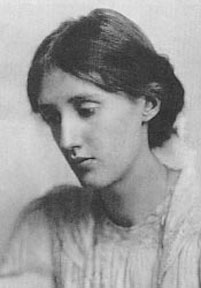
I have been hesitant about putting the Virginia Woolf-A Room of One's Own poems in my collection. The collection, after all, is an attempt to re-write myths, folklores and fairytales. So wouldn't it be weird to put my series on A Room of One's Own in there? But then, I did. Because, while working on this collection, I have often felt the need to expand the meanings of the word myth. If colonialism hasn't been a myth, then what has been? If elite white feminism isn't a myth, then what is? As I worked through the poems, I kept wondering, myths are myths, after all, no? A myth is a representation, that is. A way to inscribe a mythmaker/writer's desires, dreams, frustrations and aspirations within the body of a story. One can say, it's not the real thing in that sense. Just a story. Something imagined. Constructed. Then isn't it going to incongruous to mix historical figures like Virginia Woolf with mythical figures like Cinderella and Briseis?
But then, I also began to feel more confident about the fact that those imaginations and constructions are born out of the real thing (s), I realized. I mean, if there wasn't any patriarchy, Grimms Brothers wouldn't have written Cinderella in the way they did. So myths are historical to begin with. And history often takes the shape of myths. I played with the two a little bit, mixed them up, brushed them against each other. The way the manuscript stands now, there is a section on my "mother-poems." Three poems on Woolf, one on the Bengali folktale Arun-Barun-Kiranmala, one a re-writing of a Bengali popular lore. Apart from the fact that mothers do not necessarily cut very impressive figures in Grimms Brothers, I was also intrigued by the fact that "foremothers" occupy such an important place in Euro-American feminist literary criticism. It is almost a trope. But do we always need to glorify our foremothers (and mothers)? Is it possible always to have an unproblematic relationship with our foremothers? These were some of the questions I was asking in these poems. I thought, it would be interesting to see how my more "straight" re-writing poems look when juxtaposed with my Woolf poems. Hence, the section.
For me, there is no Grimms Brothers fairytales or Greek epics without the mediation of British colonialism. So if this manuscript is all about re-evaluating my own social, political, feminist concerns as a Bengali middle-class, (too) educated woman, seen through the lens of popular folklore, tales and myths, then there is no escaping the colonial history or neo-liberalism. Hence, the section on Woolf.
I will be curious to see what my TRUSTED READERS think about it. If they even pick on this particular aspect.
No comments:
Post a Comment